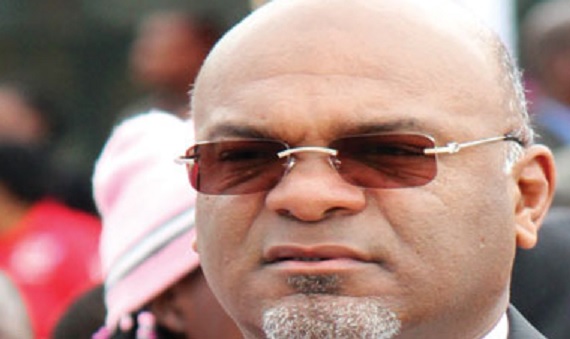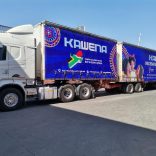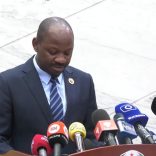Mozambique MozParks General Director elected Vice President of CTA in Maputo
Minister of Transport calls for increased productivity

File photo / Minister of Transport and Communications Carlos Mesquita
Mozambique’s Minister of Transport and Communications, Carlos Mesquita, on Wednesday argued for steps to be taken to stimulate productivity to overcome the challenges currently facing the country.
Mesquita was speaking in the southern city of Matola during the opening of his ministry’s Coordinating Council which lasts until Friday.
The minister called for action to identify and eliminate superfluous costs. Mesquita drew up a list of expenses that need to be immediately reduced: fuel, lubricants, travel, overtime, energy, communications and supplies. He added that increasing productivity and revenue collection are the main weapons with which the country can fight the economic crisis.
He argued that “toxic contracts and trade agreements that harm state entities should also be revised. This is the time for us to prioritise and maximise the use of the available services within the sector, because only then will we be contributing to the increase in gross domestic product and the stabilisation of the exchange rate”.
According to Mesquita, the focus of the government is to expand the collection of domestic revenue to cover 75 per cent of the state budget. He stated that this will only be possible with the commitment of all staff, particularly those engaged in the productive areas.
Mesquita reaffirmed the openness of the government to working with the private sector to improve the business environment. He explained that “transport and communication are very important for development because it is necessary for delivering products into the hands of the consumer. The sector is a driving force for trade and industry because vehicles, cargo, and communications are essential parts of the supply chain”.
The minister also highlighted the need to optimise the use of maritime cabotage services to facilitate both cultural and economic integration.
Among the problems that he identified in maritime logistics were exaggerated fees and expenses, exorbitant delays in ports, excessive bureaucracy, theft, and the damage and destruction of goods.
He stated that transport costs are a fundamental factor in the price of goods. Therefore, the low quality of infrastructure and services has a direct impact on society in general, “which is why it is urgent to change this paradigm”.
The governor of Maputo province, Raimundo Diomba, told the meeting that the province has a strategic transport infrastructure that serves not only Mozambique but also the southern African region. He gave as examples the port of Matola, and the Ressano Garcia, Goba and Limpopo railway lines, which play a fundamental role in the nation’s economy.
The governor pointed out that the challenges faced by the province include improvements to passenger transport and telecommunications, and the creation of an interprovincial and international road transport terminal.













Leave a Reply
Be the First to Comment!
You must be logged in to post a comment.
You must be logged in to post a comment.